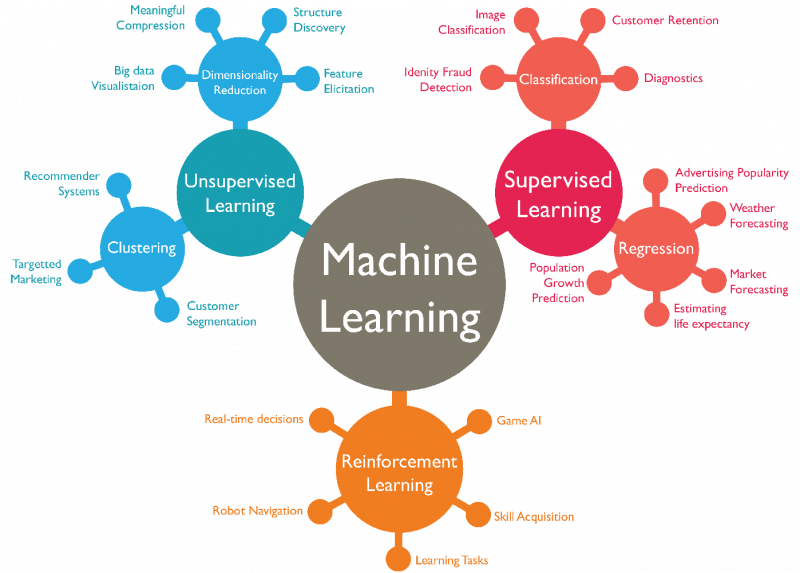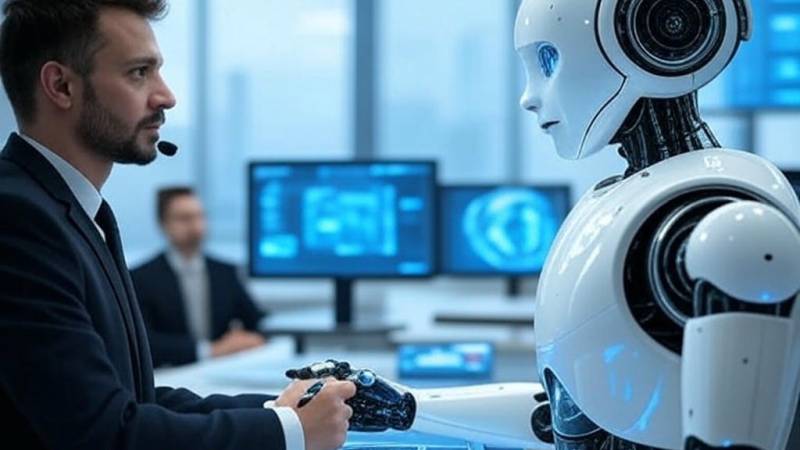Have you wondered how Netflix recommends similar shows or Snapchat knows the shape of your face? It’s all down to machine learning. Using techniques like deep learning and image recognition, models can achieve incredible things.
The worldwide machine learning market is worth $15 billion, forecasted to grow to over $200 billion by 2029. That growth demonstrates its massive potential to transform business. By learning from past data, companies can use machine learning technology to provide an enhanced customer experience.
Read Also: Emeka Ogboh: How Nigerian-born, Berlin-based Artist Is Changing The Narrative
This article will explore machine learning and its impact on mobile apps.
What is Machine Learning
Machine learning is a branch of artificial intelligence (AI). It’s the process of taking data, finding patterns and information, then making predictions that improve without human help. With further data and experience, machine learning models can achieve remarkably high accuracy.
How Machine Learning Works
Fundamentally, any task that produces data has defined patterns and requires optimization, and is a candidate for machine learning automation. Thanks to platforms like Tensorflow, machine learning is not just an option for large corporations. In fact, around half of all companies now use machine learning in some capacity.
The predictive power of machine learning comes into its own when it can learn from an extensive training dataset. In today’s world of big data and rapid CPU speeds, models can analyze millions of instances to learn how to do their tasks. This data mining allows them to get a deep understanding before any predictive analysis takes place.
Understanding Machine Learning Techniques
Machine learning algorithms take data, perform actions, and produce predictions. These algorithms handle data differently and produce varying results, so some are more suited than others to specific tasks.
They also range in complexity – from simple clustering models to advanced neural networks. Machine learning models can generally be split into three categories:
- Supervised learning: Algorithms are provided with examples of the outcome they're seeking. Then, they look for the same patterns in future examples to make educated predictions.
- Unsupervised learning: Algorithms are provided with a dataset and look for new patterns. They then organize data into meaningful groups, such as clustering customers.
- Reinforcement learning: Algorithms create new rules in a trial-and-error process. Gradually, the model learns the best way to achieve an outcome based on those results.
The appropriate machine learning algorithm depends on many things, like data size, speed, and intended results. Mobile app developers use various machine learning techniques to suit changing business needs.
Machine Learning in Mobile Applications
The machine learning revolution is well underway, and models are improving processes faster than ever. Mobile apps are no different. Mobile app machine learning models are used for data mining, forecasting, personalization, and security.
A massive 76 percent of businesses are prioritizing the adoption of machine learning. Meanwhile, many industries are reaping the rewards already.
Retail
Retail apps use machine learning to provide a deeper personalized experience for customers. This includes improved service, highly relevant product suggestions, and suitable offers.
Retail machine learning app examples include giants like Amazon, which use machine learning to understand searches and display fine-tuned results, through to start-ups and smaller companies on the cutting edge of technology.
One such app, Criteo, shows the power of using machine learning with e-commerce apps. Its algorithms monitor over one billion shoppers per month. Then, it designs robust retargeting ads based on its vast datasets.
Over 50 percent of companies already use machine learning to improve marketing. With the enhanced customer experience it offers, this trend will only grow.
Finance
Machine learning can impact finance apps in two ways. Firstly, it can help provide critical improvements in data security, detecting fraud, and blocking unusual transactions. It can also offer stricter on-device authentication methods like biometrics.
Machine learning can also transform how people use their money. Apps like Wombat put the knowledge back in the hands of investors, while intelligent and personalized projections and suggestions can tailor financial services to each user.
Healthcare
Building on user data, machine learning has the potential to transform how we manage our health. From analyzing trends in patient records to designing individual workouts, mobile healthcare apps can become powerful assistants capable of giving real-time health information.
Supervised learning, in particular, has become critical in diagnosing illness. By learning from an extensive database of medical images, apps like Aysa can check symptoms and identify conditions, allowing quicker and more appropriate treatment.
Travel
While Google Maps has provided travelers with smart directions for years, the travel industry is now primed for further development. A great way to support travel customers is with chatbots. Kayak, for example, incorporates its mobile chatbot into the whole travel cycle. Their bot provides ideas, additional products, and support.
Likewise, Hopper learns from past pricing patterns to recommend the cheapest time for customers to book their trips. With these powerful tools, travel companies engage their customers on a much deeper level.
Machine Learning & Mobile App Development
Mobile devices dominate our daily lives. By building mobile apps that use machine learning, we can fine-tune services to user behavior. In turn, this promotes loyalty and improves the bottom line.
Advances in algorithms, platforms, and software development kits (SDKs) now allow robust models to power mobile apps. Mobile developers can leverage machine learning with Flutter, amongst other frameworks, to give mobile application development revolutionary capabilities.
From improved user experience to new features, the future of mobile apps and machine learning looks bright.
Accessible Technology
All this amazing technology may be more accessible than you may think. Whilst the computer science behind the technology is immense it can be accessed readily through digital tech providers such as Amazon Web Services (AWS). By signing up users can access Amazon
Rekognition
Rekognition Image is a service that detects objects, scenes, and faces; extracts text; recognizes celebrities; and identifies inappropriate content in images. It also allows you to search and compare faces.
Rekognition Image is based on the same proven, highly scalable, deep learning technology developed by Amazon’s computer vision scientists to analyze billions of images daily for Prime Photos.
Videos are also catered for, Rekognition Video detects activities; understands the movement of people in the frame; and recognizes objects, celebrities, and inappropriate content in videos stored in Amazon S3 and live video streams from Acuity.




